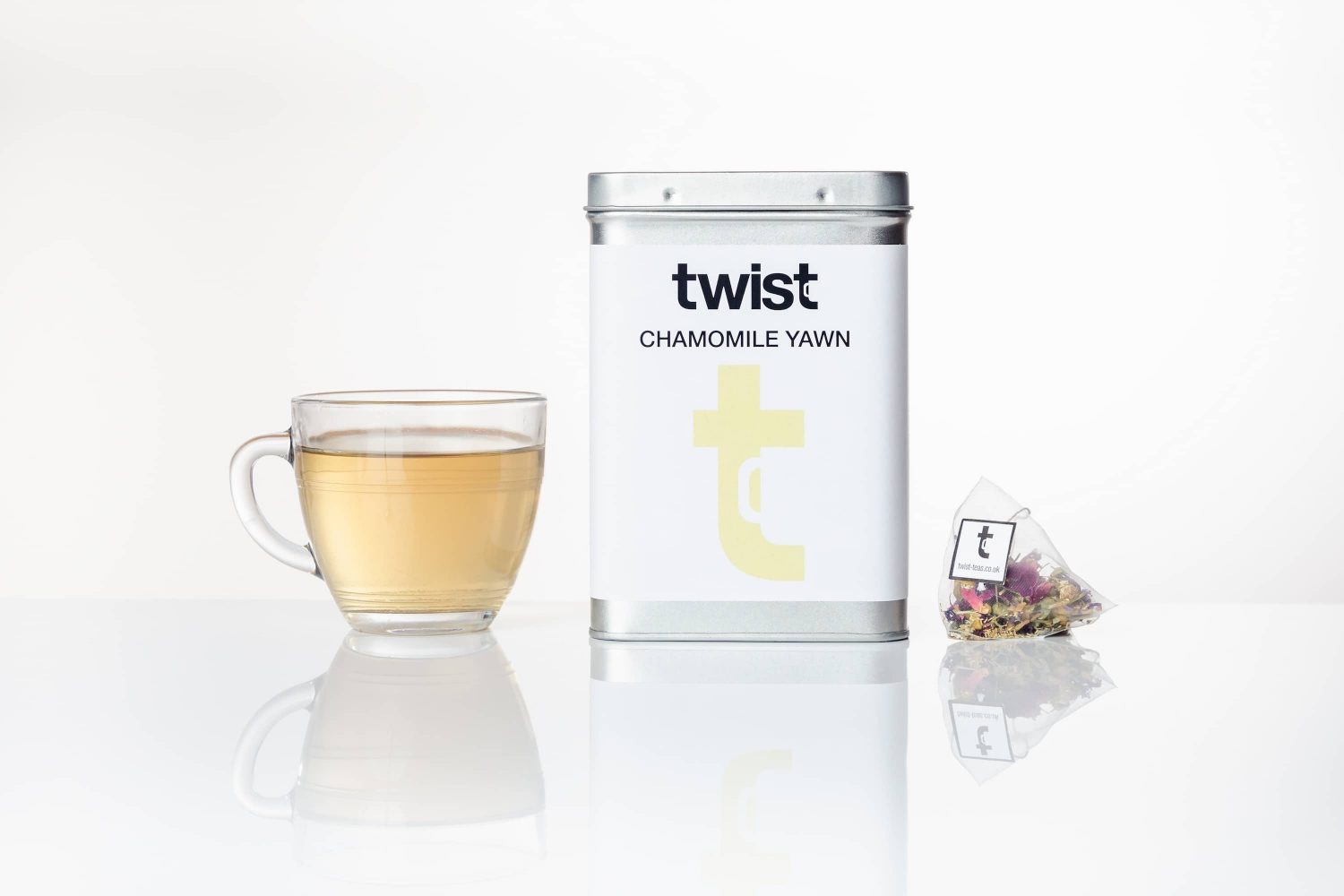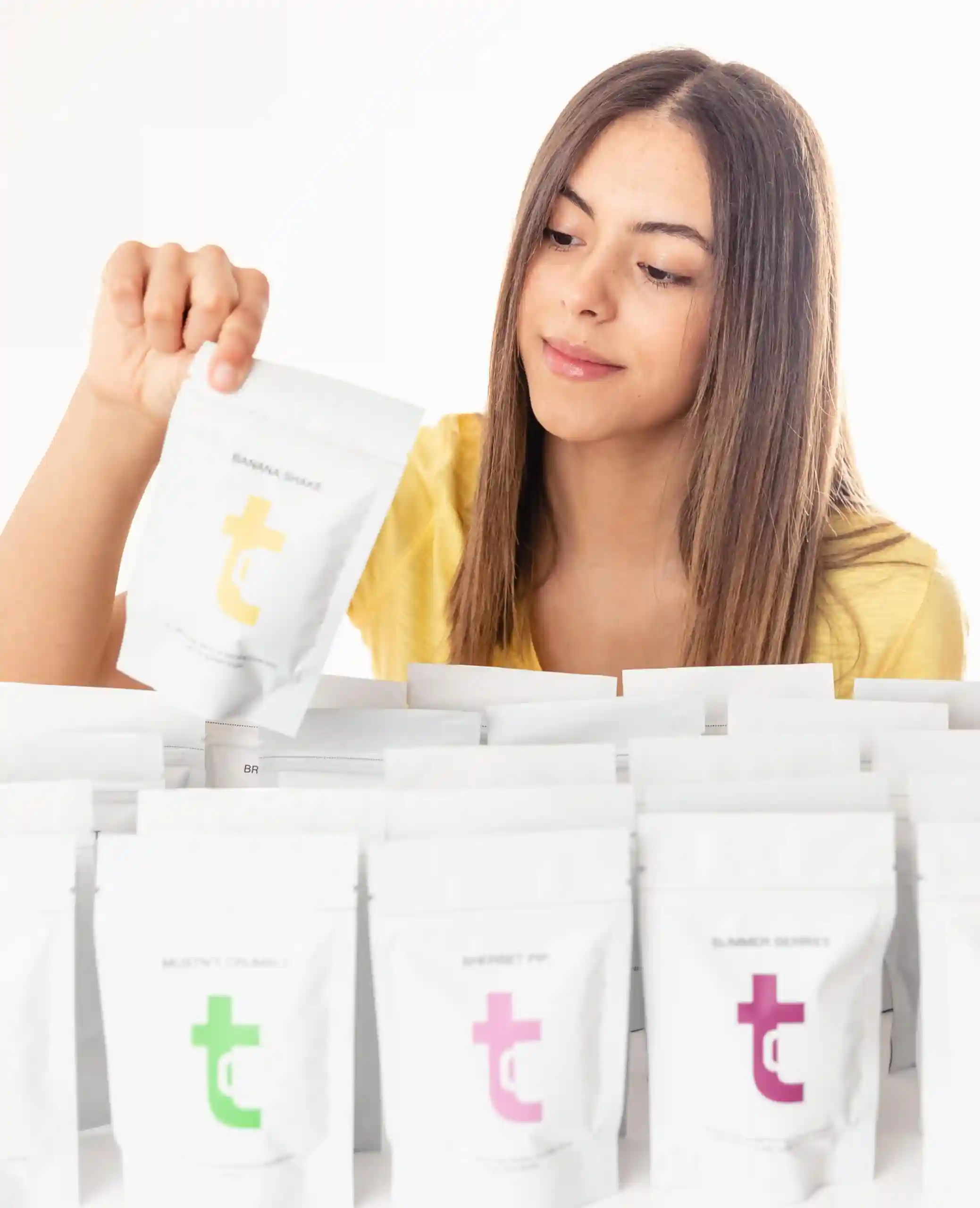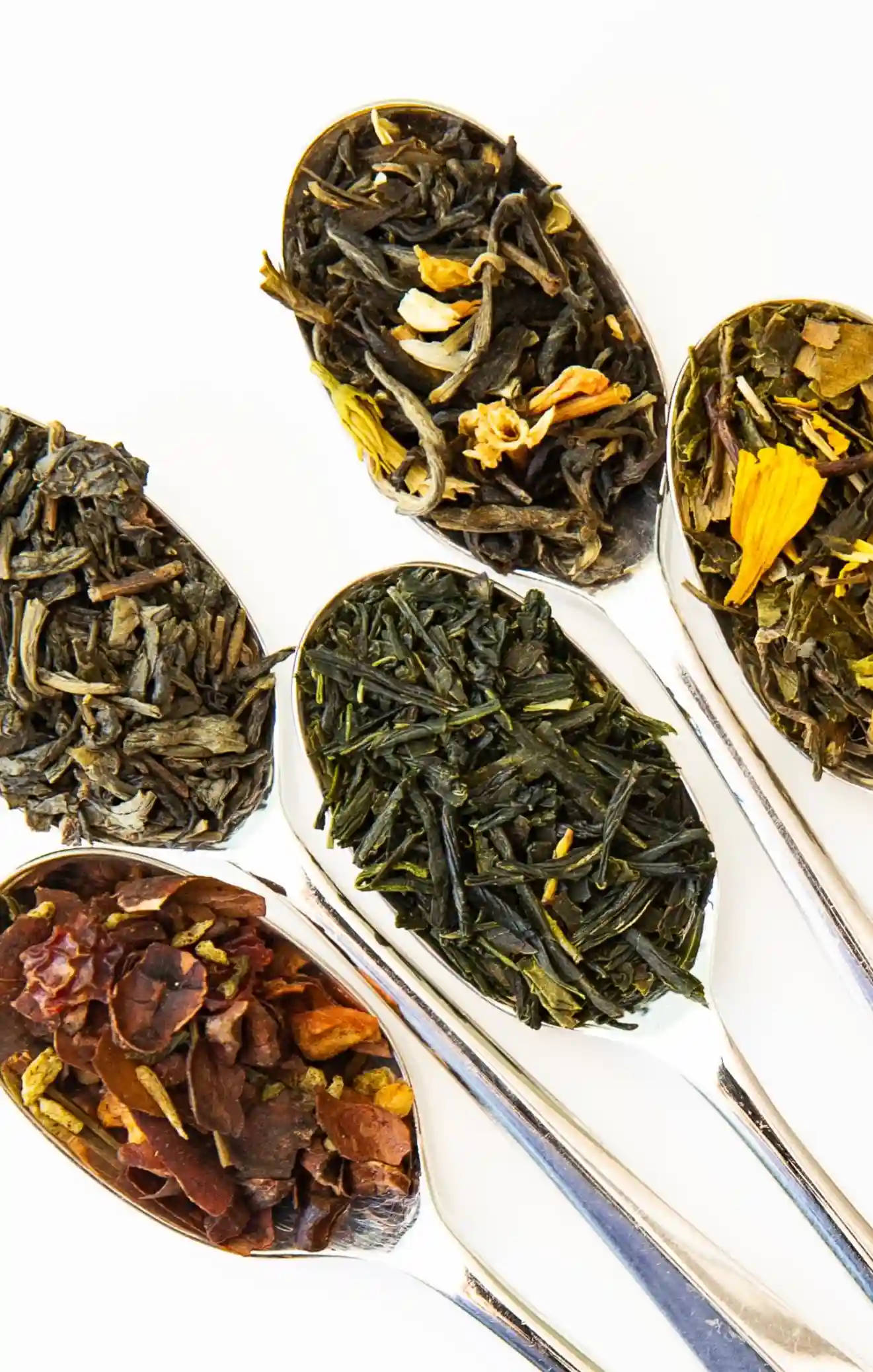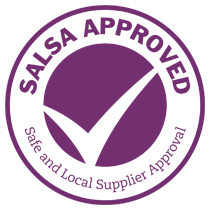Picture a serene scene: a cosy corner, a warm cup of chamomile tea cradled between your hands, and a gentle breeze carrying the soothing scent of chamomile flowers. In this moment, all worries seem to fade away, allowing you to fully embrace a sense of calm. Now imagine experiencing this tranquillity during pregnancy, a time when relaxation and self-care are paramount.
As an expectant mother, you may have wondered if chamomile tea is safe to enjoy during pregnancy. Will it provide the same calming benefits, or should it be avoided altogether? In this article, we will demystify the topic of chamomile tea for pregnant women, exploring its potential benefits, safety considerations, and expert opinions to help you make informed decisions for both you and your little one. So grab a cup of chamomile tea, settle into a comfortable position, and let’s navigate through the realm of chamomile tea during pregnancy together.
Key Takeaways
- Chamomile tea is a popular herbal remedy known for its relaxation benefits.
- While chamomile tea may offer health benefits, its safety during pregnancy is still under debate.
- Consulting with a healthcare provider is crucial before consuming chamomile tea during pregnancy.
- Chamomile tea is generally considered safe, but more research on its safety for pregnant women is needed.
- Alternative herbal teas, such as raspberry leaf tea, may be considered as safe alternatives for pregnant women.
Is Chamomile Tea Safe to Drink During Pregnancy?
When it comes to tea consumption during pregnancy, many women are cautious and seek clarity on what is safe and what should be avoided. One commonly asked question is whether chamomile tea is safe for pregnant women to drink. Let’s explore this in more detail.
Firstly, it’s important to understand that there are two main types of tea: herbal and non-herbal. Non-herbal teas, such as black, green, and oolong, contain caffeine and should be consumed in moderation during pregnancy. Caffeine intake should generally be limited to 200 milligrams per day to reduce the risk of adverse effects on the developing baby.
On the other hand, herbal teas, including chamomile tea, are naturally caffeine-free. Chamomile tea is made from the dried flowers of the chamomile plant and has a long history of use for its potential health benefits, such as promoting relaxation and reducing inflammation.
While chamomile tea is generally considered safe for most people, including pregnant women, it is important to note that there is limited research specifically on its safety during pregnancy. The available studies have primarily focused on the topical use of chamomile products and not necessarily the ingestion of chamomile tea.
Given the lack of extensive research on chamomile tea’s safety during pregnancy, it is advisable for pregnant women to discuss its consumption with their healthcare provider, who can provide personalised advice based on the individual’s health history and circumstances. A healthcare provider can further help weigh the potential benefits of chamomile tea against any possible risks, taking into account factors such as the woman’s medical history, stage of pregnancy, and overall health.
While awaiting further research, it is always recommended for pregnant women to exercise with caution when consuming any herbal products, including chamomile tea. It may be wise to limit the consumption of chamomile tea, or even opt for other pregnancy-safe herbal teas.
It’s crucial to note that individual responses to herbal teas can vary, so it’s essential to listen to your body and monitor any potential side effects. If adverse reactions occur after consuming chamomile tea or any other herbal tea, it is important to discontinue their use and consult a healthcare provider for guidance.
In summary, while chamomile tea is generally considered safe, there is limited research on its specific safety during pregnancy. Pregnant women should consult with their healthcare provider before incorporating chamomile tea into their routine to ensure the best care for themselves and their developing baby.
Benefits of Drinking Chamomile Tea During Pregnancy
During pregnancy, finding safe and effective remedies for common discomforts is essential. Chamomile tea, known for its calming properties, may offer several benefits to expectant mothers. While more research is needed to establish the specific advantages of chamomile tea during pregnancy, it is a popular choice among many pregnant women.
One of the main benefits of chamomile tea is its high concentration of antioxidants. These powerful compounds help protect the body from free radicals and oxidative stress, promoting overall health and well-being during pregnancy.
Furthermore, chamomile tea has been reported to help alleviate symptoms of nausea and morning sickness. The soothing nature of chamomile can help calm the gastrointestinal tract and reduce feelings of queasiness, making it a potential natural remedy for pregnancy-related nausea.
Incorporating chamomile tea into a pregnant woman’s routine can provide a relaxing and comforting experience. It can be enjoyed as a warm beverage to help unwind before bedtime or as a refreshing iced tea on a warm day.
However, it is important to note that while chamomile tea is generally considered safe for most pregnant women, individual reactions may vary. It is always advisable to consult with a healthcare provider before introducing any new substances or herbal remedies into a pregnancy diet.
Remember, every pregnancy is unique, and what works for one person may not work for another. It is crucial to prioritise the health and safety of both mother and baby throughout the entire pregnancy journey.
Risks of Drinking Chamomile Tea During Pregnancy
While chamomile tea is generally considered safe, there are some risks associated with its consumption during pregnancy. Chamomile tea contains anti-inflammatory agents that may be potentially dangerous during pregnancy, depending on individual medical history and consumption levels. It is crucial to consult with a healthcare provider before consuming chamomile tea during pregnancy to ensure its safety.
Pregnant women should be aware that chamomile tea can have an impact on their pregnancy due to its anti-inflammatory properties. These properties, although beneficial in some situations, can potentially cause complications when consumed in large amounts or for extended periods.
Risks of Chamomile Tea during Pregnancy
Although chamomile tea is generally safe for most people, including pregnant women, there are certain risks that need to be considered:
- The potential for premature contractions: Chamomile tea has been found to exhibit properties that may stimulate the uterus, potentially leading to premature contractions. This can be particularly concerning for women with a history of preterm labor or those at high risk.
- Allergic reactions: While rare, some individuals may be allergic to chamomile and experience adverse reactions. It is essential for pregnant women to be mindful of any signs of an allergic response, such as skin rashes, swelling, or difficulty in breathing, and must seek medical attention if necessary.
- Possible interaction with medications: Chamomile tea may interact with certain medications, including anticoagulants and sedatives. Pregnant women on medication should consult with their healthcare provider to ensure there are no potential interactions that could be harmful to themselves or their baby.
It is important to remember that every pregnancy is unique, and what may be safe for one woman may not be for another. Healthcare providers are best equipped to provide personalised advice and guidance based on an individual’s medical history and specific circumstances. Therefore, consulting with a healthcare provider before incorporating chamomile tea into the pregnancy diet is strongly recommended.
“The potential risks associated with chamomile tea during pregnancy can vary depending on the individual and their specific medical history. It is imperative for pregnant women to consult with their healthcare provider to determine the appropriate and safe use of chamomile tea.”
Expert Opinions on the Risks of Chamomile Tea
Experts have varying opinions on the risks associated with chamomile tea during pregnancy. Some believe that the potential risks are minimal and that moderate consumption of chamomile tea is unlikely to cause complications. Others, however, take a more cautious approach due to the limited research available on this specific topic.
Dr. Sarah Roberts, a leading obstetrician, suggests that pregnant women should exercise with caution when consuming chamomile tea, especially in large quantities or during the first trimester when the risk of pregnancy complications is higher. She advises pregnant women to consult with their healthcare provider before incorporating chamomile tea into their pregnancy diet.
Dr. Emma Thompson, a renowned herbalist, emphasises the importance of understanding individual sensitivities and reactions to chamomile tea. She advises pregnant women to start with small amounts and monitor for any adverse effects. If any concerns arise, Dr. Thompson strongly recommends seeking guidance from a qualified healthcare professional.
| Expert | Opinion |
|---|---|
| Dr. Sarah Roberts | Pregnant women should exercise with caution and consult with a healthcare provider. |
| Dr. Emma Thompson | Start with small amounts and monitor for any adverse effects. |
Ultimately, it is crucial for pregnant women to make informed decisions about consuming chamomile tea during pregnancy. Consulting with a healthcare provider, understanding individual medical history, and closely monitoring for any adverse reactions or complications are all essential steps in ensuring the well-being of both the mother and the baby.
Can Chamomile Tea Help Induce Labor?
Despite popular belief, there is currently no medical evidence to support the claim that chamomile tea can induce labor. While chamomile tea may have uterine-stimulating properties, more research is needed to establish its efficacy in labor induction. It is important for pregnant women to rely on evidence-based medical advice rather than myths or folk remedies.
Some anecdotal evidence suggests that chamomile tea might aid in labor induction due to its potential ability to stimulate contractions. However, it is crucial to highlight that relying solely on chamomile tea for inducing labor is not medically recommended. It is always best to discuss any concerns or plans for labor induction with a healthcare provider who can provide appropriate guidance based on individual circumstances.
Expert Interview:
“While chamomile tea is often associated with relaxation and various health benefits, it is important to remember that the claims about its role in labor induction are not supported by medical evidence. As a healthcare professional, I advise pregnant women to rely on established methods for labor induction discussed with their healthcare provider.”
– Dr. Emily Richards, OB-GYN Specialist
Pregnancy is a delicate and unique period, and decisions regarding labor induction should be made in consultation with healthcare providers. While herbal teas like chamomile may offer health benefits during pregnancy, their potential role in labor induction requires further investigation before any definitive conclusions can be drawn.
Herbal Teas Safe to Drink During Pregnancy
When it comes to herbal teas during pregnancy, it’s important for expectant mothers to prioritise safety. While some herbal teas are generally considered safer for pregnant women, it’s crucial to consult with a healthcare provider before incorporating any herbal teas into the pregnancy diet.
One commonly used herbal tea is nettle tea. It is often found in herbal tea blends and is generally considered safe during pregnancy. Nettle tea is known for its high nutritional content, including vitamins and minerals that can support the health of both the mother and the baby.
However, it is worth noting that even herbal teas labeled as “pregnancy teas” have not been extensively studied for their safety during pregnancy. Each individual may react differently to herbal teas, and their safety can vary depending on factors such as the mother’s overall health and any underlying medical conditions.
Therefore, it is highly recommended to consult with a healthcare provider before consuming any herbal teas during pregnancy. A healthcare provider can provide personalised advice and recommendations based on the mother’s specific needs and medical history.
In addition, it is essential to choose high-quality herbal teas from reputable sources. Opting for teas that are specifically marketed and formulated for pregnant women may offer added assurance, but it’s important to remember that even these teas may not have undergone extensive scientific research specific to pregnancy.
For a clearer understanding of the safety of herbal teas during pregnancy, here is a table listing some commonly consumed herbal teas and their general safety for expectant mothers:
| Herbal Tea | Safety During Pregnancy |
|---|---|
| Nettle Tea | Generally considered safe |
| Raspberry Leaf Tea | Widely used and believed to be safe, but consult a healthcare provider |
| Peppermint Tea | Considered safe in moderation, but may cause acid reflux in some individuals |
| Ginger Tea | Can be consumed in moderation to alleviate nausea, but consult a healthcare provider for appropriate dosage |
Please bear in mind that this table provides a general overview and should not be considered as medical advice. Every pregnancy is unique, and consulting with a healthcare provider is essential to ensure the safety of both the mother and the baby.
Remember, safety is of utmost importance during pregnancy, and seeking professional advice can help expectant mothers make informed decisions about consuming herbal teas.
Expert Opinions on Chamomile Tea in Pregnancy
The safety of chamomile tea during pregnancy is a topic that experts have varying opinions on. While some experts consider chamomile tea safe for pregnant women, others recommend caution due to limited research on its safety and potential risks.
“Chamomile tea can be enjoyed in moderation during pregnancy as long as it is brewed from safe, high-quality sources. However, pregnant women should exercise caution, as there is still a lack of extensive research on its effects during pregnancy.”
– Dr. Sarah Thompson, Obstetrician
Pregnancy is a unique time in a woman’s life, and individual medical circumstances can differ. Therefore, it is advisable for pregnant women to seek advice from healthcare providers who can provide personalised recommendations based on their individual health and pregnancy.
In the meantime, pregnant women can explore other herbal alternatives that may offer similar benefits. It is important to consult with healthcare providers about the appropriate alternatives for individual situations.
| Herbal Tea | Safety Rating |
|---|---|
| Peppermint Tea | Generally considered safe |
| Ginger Tea | Generally considered safe; may help with nausea |
| Rooibos Tea | Generally considered safe; rich in antioxidants |
*Please note that this table provides a general overview and individual reactions may vary. Pregnant women should always consult with healthcare providers before incorporating any herbal teas into their pregnancy diet.
Through open and informed conversations with healthcare providers, pregnant women can make the best decisions for their health and the well-being of their baby.
Alternatives to Chamomile Tea
If pregnant women are hesitant about consuming chamomile tea, there are alternative herbal teas that may provide similar benefits. One such alternative is raspberry leaf tea, which has a long history as a pregnancy supplement. This herbal tea is believed to help tone the muscles of the uterus, potentially assisting with labor and delivery. However, it is crucial to consult with a healthcare provider before incorporating any herbal teas into the pregnancy diet to ensure safety and suitability.
Comparison of Chamomile Tea and Raspberry Leaf Tea
| Herbal Tea | Benefits | Cautions |
|---|---|---|
| Chamomile Tea |
|
|
| Raspberry Leaf Tea |
|
|
While chamomile tea offers calming and relaxing properties along with potential relief from pregnancy-related symptoms, raspberry leaf tea focuses on supporting uterine muscle tone. It is important to note that individual reactions to herbal teas may vary, and consulting with a healthcare provider is essential in making informed decisions about incorporating these alternatives into the pregnancy diet.
Safety Considerations for Consuming Herbal Teas During Pregnancy
When it comes to consuming herbal teas during pregnancy, there are important safety considerations to keep in mind. Pregnant women should consult with their healthcare providers before adding any herbal teas to their diet, as individual reactions to herbs can vary. By seeking professional advice, expectant mothers can make informed decisions about which herbal teas are safe for them and their developing baby.
Choosing high-quality teas is crucial to ensure the safety and efficacy of the herbal tea consumed during pregnancy. Opting for reputable brands and organic varieties can minimise the risk of contaminants and ensure that the tea is free from harmful substances.
Furthermore, it is important to avoid risky herbs that may have adverse effects on pregnancy. Some herbs, such as the following examples, are considered potentially unsafe for pregnant women:
| Herbs to Avoid during Pregnancy | Reasons for Avoidance |
|---|---|
| St. John’s Wort | Potential interaction with medications and increased photosensitivity |
| Ginseng | Possible hormonal effects and risk of potential birth defects |
| Black Cohosh | May stimulate contractions and increase the risk of preterm labor |
Limiting caffeine intake is also crucial for pregnant women. Some herbal teas may contain caffeine in varying amounts, which can have potential effects on fetal development. It is important to read labels carefully and choose caffeine-free herbal teas or those with low caffeine content.
Following these safety guidelines can help ensure the well-being of both the mother and the baby. By consulting healthcare providers, choosing high-quality teas, avoiding risky herbs, and limiting caffeine intake, pregnant women can safely enjoy the benefits of herbal teas during pregnancy.
How to Safely Incorporate Herbal Teas into Your Pregnancy Diet

Safely incorporating herbal teas during pregnancy is essential to ensure the well-being of both the mother and the baby. By following these guidelines, pregnant women can enjoy the benefits of herbal teas while minimising any risks.
Consult Healthcare Providers
Before incorporating herbal teas into your pregnancy diet, it is crucial to consult with your healthcare provider. They can provide personalised advice based on your individual health and pregnancy. Your healthcare provider will consider factors such as any existing health conditions, medications you are taking, and potential interactions between herbal teas and other substances.
Choose Safe Herbs
Not all herbs are safe for consumption during pregnancy. It is important to choose herbal teas that are known to be safe for pregnant women. Some herbs that are generally considered safe during pregnancy include:
- Raspberry leaf
- Ginger root
- Peppermint
These herbs have a long history of traditional use during pregnancy and are widely regarded as safe. However, it is still recommended to consult with your healthcare provider before incorporating any specific herb into your pregnancy diet.
Avoid Risky Herbs
While some herbs are safe for consumption during pregnancy, others are considered risky and should be avoided. Certain herbs have the potential for adverse effects on pregnancy, such as stimulating uterine contractions or interfering with hormone levels. Some examples of herbs to avoid during pregnancy include:
- Black cohosh
- Pennyroyal
- Blue cohosh
It is important to read labels carefully and avoid herbal teas that contain these risky herbs. If you are uncertain about the safety of an herb, consult with your healthcare provider for guidance.
Limit Caffeine Intake
Herbal teas offer a caffeine-free alternative to traditional teas, which contain caffeine. However, some herbal teas may contain small amounts of caffeine due to the inclusion of ingredients such as yerba mate or guayusa. It is important to read the labels carefully and choose herbal teas that are caffeine-free or have a low caffeine content. Limiting caffeine intake is crucial during pregnancy to avoid potential adverse effects on the developing baby.
Prioritise High-Quality Teas
When incorporating herbal teas into your pregnancy diet, it is recommended to prioritise high-quality teas. This ensures that the teas are free from contaminants and have undergone proper processing. Look for reputable brands and check for any certifications or quality seals on the packaging.
Be Aware of Potential Allergic Reactions
While rare, allergic reactions to herbs can occur. Pregnant women should be mindful of any potential allergic reactions when consuming herbal teas. If you experience symptoms such as hives, itching, or difficulty breathing, discontinue the use of the herbal tea and seek medical attention immediately.
Healthy and Safe Sleep Tips During Pregnancy
Many pregnant women struggle with sleep during pregnancy. The physical and hormonal changes that occur can make it difficult to get a good night’s rest. However, there are several strategies that pregnant women can employ to promote better sleep quality and ensure the safety of both themselves and their baby.
1. Follow a Consistent Pre-Bed Routine
Establishing a pre-bed routine can signal to your body that it’s time to wind down and prepare for sleep. Consider incorporating activities such as reading a book, taking a warm bath, or practicing relaxation techniques like deep breathing or gentle stretching. By following a consistent routine, you can create a sense of calm and relaxation before bedtime.
2. Create a Relaxing Sleep Environment
Your sleep environment plays a crucial role in achieving quality sleep. Make sure your bedroom is cool, dark, and quiet. Use blackout curtains or an eye mask to block out any unwanted light. If noise is a concern, consider using earplugs or a white noise machine to drown out any disturbances. Additionally, investing in a comfortable mattress and pillows can provide the necessary support for a good night’s rest.
3. Avoid Blue Light from Electronic Devices
Exposure to blue light emitted by electronic devices like smartphones, tablets, and computers can disrupt your body’s natural sleep-wake cycle. In the evening, try to limit your screen time at least an hour before bed. Instead, engage in relaxing activities that promote sleep, such as reading a book or practicing mindfulness.
4. Avoid Chemicals that Interfere with Sleep
Some chemicals, such as nicotine and caffeine, can interfere with sleep. It is advisable for pregnant women to avoid or limit the consumption of these substances, particularly close to bedtime. Nicotine is found in cigarettes and can act as a stimulant, making it harder to fall asleep. Caffeine is a natural stimulant found in coffee, tea, soda, and chocolate. It is best to avoid or reduce caffeine intake, especially in the afternoon and evening.
5. Incorporating Chamomile Tea for Better Sleep Quality

Chamomile tea is known for its calming properties and potential sleep benefits, and you can find our popular relaxing blend ‘Chamomile Yawn’ here. The soothing effects of chamomile can help relax the body and mind, making it easier to fall asleep and enjoy a restful night. However, it is essential to remember that moderation is key when consuming chamomile tea during pregnancy. It is always recommended to consult with a healthcare provider before incorporating it into your bedtime routine to ensure its safety.
By implementing these healthy and safe sleep tips, pregnant women can improve their sleep quality and overall well-being during pregnancy. Remember to consult with a healthcare provider for personalised recommendations and to address any specific concerns or conditions.
Conclusion
The safety and benefits of chamomile tea for pregnant women are still under debate due to limited research. While some experts consider it safe, caution is advised, and pregnant women are recommended to consult with healthcare providers before consuming chamomile tea. It is essential to make well-informed decisions and prioritise the safety and well-being of both the mother and the baby during pregnancy.
FAQ
Is it safe to drink chamomile tea during pregnancy?
While chamomile tea is generally considered safe, it is important for pregnant women to exercise with caution due to limited research on its safety. It is recommended to consult with a healthcare provider before consuming chamomile tea during pregnancy.
What are the benefits of drinking chamomile tea during pregnancy?
Chamomile tea contains antioxidants, which can support overall health. It may also help alleviate symptoms of nausea and morning sickness due to its calming effects on the gastrointestinal tract.
What are the risks of drinking chamomile tea during pregnancy?
Chamomile tea contains anti-inflammatory agents that may be potentially dangerous during pregnancy, depending on individual medical history and consumption levels. It is important to consult with a healthcare provider before consuming chamomile tea during pregnancy to ensure its safety.
Can chamomile tea help induce labor?
Despite popular belief, there is currently no medical evidence to support the claim that chamomile tea can induce labor. More research is needed to establish its efficacy in labor induction.
What are some herbal teas safe to drink during pregnancy?
Nettle tea is commonly used in herbal teas and is generally considered safe during pregnancy. However, it is recommended to consult with a healthcare provider before consuming any herbal teas during pregnancy.
What do experts say about chamomile tea in pregnancy?
Expert opinions on the safety of chamomile tea during pregnancy vary. While some consider it safe, others recommend caution due to limited research. It is advisable to seek advice from healthcare providers for personalised recommendations.
What are some alternatives to chamomile tea during pregnancy?
Raspberry leaf tea is a commonly used alternative with a long history as a pregnancy supplement. However, it is important to consult with a healthcare provider before incorporating any herbal teas into the pregnancy diet.
What are the safety considerations for consuming herbal teas during pregnancy?
Pregnant women should consult with healthcare providers before adding any herbal teas to their diet, as individual reactions to herbs can vary. It is also crucial to choose high-quality teas, avoid risky herbs, and limit caffeine intake.
How can herbal teas be safely incorporated into the pregnancy diet?
Safely incorporating herbal teas involves consulting with healthcare providers, choosing safe herbs, avoiding risky herbs, and limiting caffeine intake. Pregnant women should also prioritise high-quality teas and be aware of potential allergic reactions.
What are some healthy and safe sleep tips during pregnancy?
Pregnant women can improve sleep quality by following a consistent pre-bed routine, creating a relaxing sleep environment, avoiding blue light from electronic devices before bedtime, and avoiding chemicals that interfere with sleep.
What is the conclusion on chamomile tea and pregnancy?
The safety and benefits of chamomile tea for pregnant women are still under debate due to limited research. It is advisable to consult with healthcare providers for personalised recommendations and prioritise the safety and well-being of both the mother and the baby during pregnancy.



















